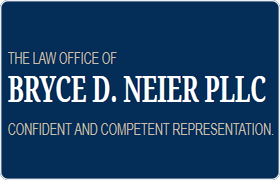 Stedman Divorce & Family Law Lawyers, North Carolina
Stedman Divorce & Family Law Lawyers, North Carolina
Sponsored Law Firm
-
 x
x

Click For More Info:
-
The Law Office of Bryce D. Neier PLLC
2525 Raeford Road Fayetteville, NC 28305» view mapDivorce and Family Law Confident and Competent Representation
Your advocate and voice of reason during family law disputes.
800-979-4310
Lawyers
1-2 of 2 matches



 Bryce Neier Fayetteville, NC
Bryce Neier Fayetteville, NC AboutThe Law Office of Bryce D. Neier PLLC
AboutThe Law Office of Bryce D. Neier PLLC Practice AreasSpecializations
Practice AreasSpecializations